| | 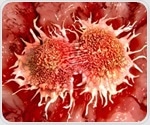 The gut microbiota plays a crucial role in maintaining host health and liver function. Fecal microbiota transplantation (FMT), an emerging therapeutic modality, has demonstrated promising potential in the treatment of chronic liver diseases. The gut microbiota plays a crucial role in maintaining host health and liver function. Fecal microbiota transplantation (FMT), an emerging therapeutic modality, has demonstrated promising potential in the treatment of chronic liver diseases. | |
|
| | 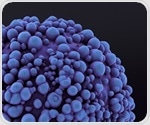 The second annual report from the National Cancer Database (NCDB) of the American College of Surgeons (ACS) documents a substantial rise in medication treatments, such as chemotherapy, immunotherapy, and hormone therapy, used before surgery to treat many cancers, often allowing less invasive surgery and helping clinicians assess how a patient's cancer responds to medication to guide the most effective treatment options. The second annual report from the National Cancer Database (NCDB) of the American College of Surgeons (ACS) documents a substantial rise in medication treatments, such as chemotherapy, immunotherapy, and hormone therapy, used before surgery to treat many cancers, often allowing less invasive surgery and helping clinicians assess how a patient's cancer responds to medication to guide the most effective treatment options. | |
|
| | 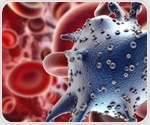 A new study by the National Cancer Research Centre (CNIO) has identified several sets of genes related to the predisposition to develop pancreatic ductal adenocarcinoma (the most common type of pancreatic cancer), as well as the prognosis of the disease once it has appeared. A new study by the National Cancer Research Centre (CNIO) has identified several sets of genes related to the predisposition to develop pancreatic ductal adenocarcinoma (the most common type of pancreatic cancer), as well as the prognosis of the disease once it has appeared. | |
|
| | 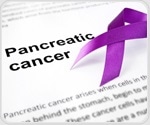 A recent publication in Nature Medicine describes a novel immunotherapy targeting pancreatic cancer that has shown promising results in a first in-human phase 1/2 trial. A recent publication in Nature Medicine describes a novel immunotherapy targeting pancreatic cancer that has shown promising results in a first in-human phase 1/2 trial. | |
|
| | 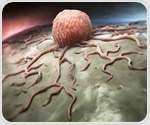 Pancreatic ductal adenocarcinoma (PDAC) is the most common type of pancreatic cancer and begins in the cells lining the pancreatic duct. Pancreatic ductal adenocarcinoma (PDAC) is the most common type of pancreatic cancer and begins in the cells lining the pancreatic duct. | |
|
| |  Oncologists have achieved some immune system responses in patients with pancreatic cancers using various combinations of vaccines and immune checkpoint inhibitor drugs, but it's not always clear which therapy is inducing what type of response. Oncologists have achieved some immune system responses in patients with pancreatic cancers using various combinations of vaccines and immune checkpoint inhibitor drugs, but it's not always clear which therapy is inducing what type of response. | |
|
| | 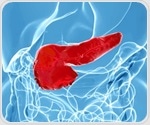 Organs often have fluid-filled spaces called lumens, which are crucial for organ function and serve as transport and delivery networks. Organs often have fluid-filled spaces called lumens, which are crucial for organ function and serve as transport and delivery networks. | |
|
| | 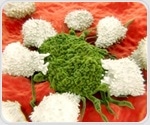 Hepatocellular carcinoma is one of the leading causes of cancer-related death worldwide, largely due to its high rate of recurrence after surgery. Even after complete tumor removal, microscopic residual disease and early dissemination frequently lead to relapse within the first two years. Hepatocellular carcinoma is one of the leading causes of cancer-related death worldwide, largely due to its high rate of recurrence after surgery. Even after complete tumor removal, microscopic residual disease and early dissemination frequently lead to relapse within the first two years. | |
|
| |  A research team led by Professor Yuan Li at Nanjing Medical University published a research paper entitled "A Cigarette Compound-Induced Tumor Microenvironment Promotes Sorafenib Resistance in Hepatocellular Carcinoma via the 14-3-3η-Modified Tumor-Associated Proteome" in the Chinese Medical Journal. A research team led by Professor Yuan Li at Nanjing Medical University published a research paper entitled "A Cigarette Compound-Induced Tumor Microenvironment Promotes Sorafenib Resistance in Hepatocellular Carcinoma via the 14-3-3η-Modified Tumor-Associated Proteome" in the Chinese Medical Journal. | |
|
| | 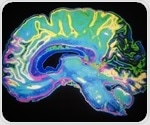 The effect of obesity on brain health may depend not only on how much fat is in the body, but also on the areas of the body where fat is stored, according to a study published today in Radiology, the flagship journal of the Radiological Society of North America (RSNA). The effect of obesity on brain health may depend not only on how much fat is in the body, but also on the areas of the body where fat is stored, according to a study published today in Radiology, the flagship journal of the Radiological Society of North America (RSNA). | |
|
| | 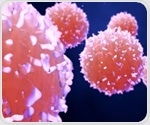 The prognostic nutritional index (PNI), calculated from serum albumin and lymphocyte count, reflects a patient's immune-nutritional status and has been proposed as a prognostic marker in hepatocellular carcinoma (HCC). The prognostic nutritional index (PNI), calculated from serum albumin and lymphocyte count, reflects a patient's immune-nutritional status and has been proposed as a prognostic marker in hepatocellular carcinoma (HCC). | |
|
| | Scientists have discovered that blocking a key cellular enzyme thought to protect against fatty liver disease may instead increase the risk of chronic liver damage and cancer as we age. | |
|
| | In a unique finding, researchers at Georgetown's Lombardi Comprehensive Cancer Center discovered that when pancreatic cancer cells send out tiny particles that are packed with certain microRNA molecules, nearby immune cells called macrophages are reprogrammed to help the tumor grow instead of engaging in their regular role of fighting the tumor. | |
|
| | Metabolic dysfunction-associated steatotic liver disease (MASLD) and its progressive form, metabolic dysfunction-associated steatohepatitis (MASH), represent the most common chronic liver diseases in Western populations, driven largely by obesity and insulin resistance. | |
|
| | A new study led by Aaron Hobbs, Ph.D., and Rachel Burge, Ph.D., at MUSC Hollings Cancer Center, reveals why a specific gene mutation behaves differently from other variants. | |
|
| | Children born to mothers who consume a high-fat, high-sugar diet during pregnancy and breastfeeding face a higher risk of developing fatty liver disease later in life. | |
|
| | Researchers at McMaster University are leading preclinical studies into a novel drug candidate developed by Espervita Therapeutics that has the potential to prevent and reverse liver fibrosis - a dangerous, disease-induced build-up of scar tissue in the liver that often leads to cancer. | |
|
| | Familial Hypobetalipoproteinemia (FHBL), caused by variants in the apolipoprotein B (APOB) gene, is a rare autosomal co-dominant monogenic disorder characterized by lifelong low plasma levels of total cholesterol, low-density lipoprotein cholesterol (LDL-C), and APOB. | |
|
| | 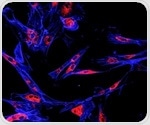 Could this mark a shift in how we think about cancer therapy? At least in the laboratory, evidence suggests it may be. Could this mark a shift in how we think about cancer therapy? At least in the laboratory, evidence suggests it may be. | |